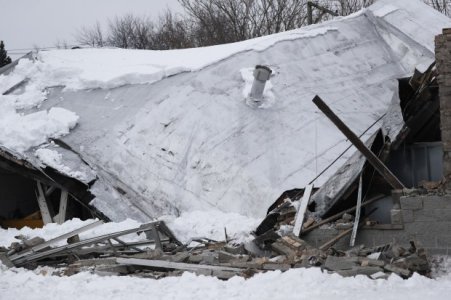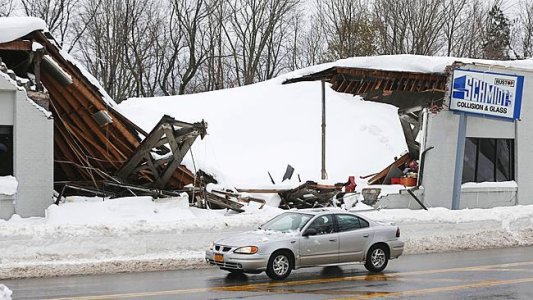MechaJutaro
Poster
Hola, everyone. Trust that your weekends have started out pleasantly thus far. Recently, a recovery organization I've belonged to since '14(SMART Recovery) elevated our former and first DEI chief to the office of Executive director. He promptly sent out the following newsletter:
"
Considering Power Dynamics in Our Meetings
Power dynamics exist any time human beings gather in a community with one another, and our self-management mutual support group meetings are no exception. Noticing and attending to the power dynamics that exist in our meetings is critical as facilitators. Not doing so is a barrier to empowerment that we should all be concerned about if we want our meetings to be safe places for for all participants to pursue their recovery journeys. What do we mean by power? In this context, we are referring to the real and perceived agency that one has over one’s own life and circumstances. There are a variety of factors that help to determine the relative power that an individual perceives in a given situation. Consider these examples:
Accumulated Recovery Time
Closeness to the Facilitator
Financial Security Relationship
Security Education Level Gender
Gender Identity Sexual
Orientation Race Age Physical
Health and Ability Mental Health and Ability
History of Trauma
While there are no absolutes as we consider the relative power of individuals in our meetings, we generally learn enough about participants to be able to recognize when an interpersonal situation is occurring between individuals that are not equally “powerful” at that time. It is crucial in those situations that we, the rained facilitators, intervene as necessary to reinforce the agency of the less powerful party to describe their experiences in their terms without judgment from other group members. If a participant is new to the group, we should assume that they are at a relative power disadvantage simply as a newcomer. Telling new or less powerful participants to use a SMART tool or how to use a SMART tool in response to a share is NOT what we are trained to do when a participant shares something vulnerable with the group. Instead, we should validate the person’s experience, ask how the group can provide support, and use our motivational interviewing skills to explore the share with the participant if they are interested in doing so. If a fellow participant, especially a more powerful participant, invalidates a person’s share, we should remind them that we don’t give direct advice in SMART Recovery and proceed with the steps above.
SMART Recovery is an incredible tool for empowerment when it’s implemented in a way that respects that not every person is starting off on a level power playing field. I hope that you’ll join me in reflecting on this topic with an open mind in the spirit of continuous improvement and wanting SMART Recovery to not just be accessible to all, but also empowering for all. Peace, Pete Rubinas (he/him/his)"
Dunno if anyone else here attends a support group regularly, and if so, whether or not you've all received similar instructions. So I’m posting here to ask what we’re to do in regards to one demographic who’s almost never discussed by proponents of DEI: Serial murderers
Fair inference… Contemporary equivalents to Albert Fish, Ed Gein, Jeff Dahmer, Karla Holmka, Aileen Wuornos, Carlton Gary, Javed Iqbal, Richard Ramirez, and Yang Xinhai who haven’t yet been identified and incarcerated are almost certainly present in recovery meetings throughout America. And an immense PD exists between folks like this, and the rest of us “normies”
Whereas they’ve enjoyed the power of dining on human flesh, and washing down their fava beans with several goblets of warm plasma, we non-serial murderers suffer the inequity of having had to settle for merely WONDERING what our fellow Homo Sapiens taste like, once they’ve been fried up and sauteed. Any ideas as to how one goes about rectifying this monsterous affront to the principles of Diversity, Equity, And Inclusion in recovery pow-wows would be most welcome. Is it OK for us to start asking the lambs in our flock outright, at the beginning of each meeting questions such as:
“Has anyone here tonight strangled a sex worker behind the dumpster at Dairy Queen recently?” Or “In the past six months, have any of you picked up a hitchiker while cruising down the freeway, dismembered that poor bastard while he was still alive, then tossed his limbs and vital organs into your oven for supper?”
Or would making such direct inquiries turn meetings into Emotionally Unsafe Spaces for those participants who’s idea of recreation leans toward hobbies like rock climbing and Laser Tag, and away from activities such as sexual assault and spilling innocent blood?
"
Considering Power Dynamics in Our Meetings
Power dynamics exist any time human beings gather in a community with one another, and our self-management mutual support group meetings are no exception. Noticing and attending to the power dynamics that exist in our meetings is critical as facilitators. Not doing so is a barrier to empowerment that we should all be concerned about if we want our meetings to be safe places for for all participants to pursue their recovery journeys. What do we mean by power? In this context, we are referring to the real and perceived agency that one has over one’s own life and circumstances. There are a variety of factors that help to determine the relative power that an individual perceives in a given situation. Consider these examples:
Accumulated Recovery Time
Closeness to the Facilitator
Financial Security Relationship
Security Education Level Gender
Gender Identity Sexual
Orientation Race Age Physical
Health and Ability Mental Health and Ability
History of Trauma
While there are no absolutes as we consider the relative power of individuals in our meetings, we generally learn enough about participants to be able to recognize when an interpersonal situation is occurring between individuals that are not equally “powerful” at that time. It is crucial in those situations that we, the rained facilitators, intervene as necessary to reinforce the agency of the less powerful party to describe their experiences in their terms without judgment from other group members. If a participant is new to the group, we should assume that they are at a relative power disadvantage simply as a newcomer. Telling new or less powerful participants to use a SMART tool or how to use a SMART tool in response to a share is NOT what we are trained to do when a participant shares something vulnerable with the group. Instead, we should validate the person’s experience, ask how the group can provide support, and use our motivational interviewing skills to explore the share with the participant if they are interested in doing so. If a fellow participant, especially a more powerful participant, invalidates a person’s share, we should remind them that we don’t give direct advice in SMART Recovery and proceed with the steps above.
SMART Recovery is an incredible tool for empowerment when it’s implemented in a way that respects that not every person is starting off on a level power playing field. I hope that you’ll join me in reflecting on this topic with an open mind in the spirit of continuous improvement and wanting SMART Recovery to not just be accessible to all, but also empowering for all. Peace, Pete Rubinas (he/him/his)"
Dunno if anyone else here attends a support group regularly, and if so, whether or not you've all received similar instructions. So I’m posting here to ask what we’re to do in regards to one demographic who’s almost never discussed by proponents of DEI: Serial murderers
Fair inference… Contemporary equivalents to Albert Fish, Ed Gein, Jeff Dahmer, Karla Holmka, Aileen Wuornos, Carlton Gary, Javed Iqbal, Richard Ramirez, and Yang Xinhai who haven’t yet been identified and incarcerated are almost certainly present in recovery meetings throughout America. And an immense PD exists between folks like this, and the rest of us “normies”
Whereas they’ve enjoyed the power of dining on human flesh, and washing down their fava beans with several goblets of warm plasma, we non-serial murderers suffer the inequity of having had to settle for merely WONDERING what our fellow Homo Sapiens taste like, once they’ve been fried up and sauteed. Any ideas as to how one goes about rectifying this monsterous affront to the principles of Diversity, Equity, And Inclusion in recovery pow-wows would be most welcome. Is it OK for us to start asking the lambs in our flock outright, at the beginning of each meeting questions such as:
“Has anyone here tonight strangled a sex worker behind the dumpster at Dairy Queen recently?” Or “In the past six months, have any of you picked up a hitchiker while cruising down the freeway, dismembered that poor bastard while he was still alive, then tossed his limbs and vital organs into your oven for supper?”
Or would making such direct inquiries turn meetings into Emotionally Unsafe Spaces for those participants who’s idea of recreation leans toward hobbies like rock climbing and Laser Tag, and away from activities such as sexual assault and spilling innocent blood?









